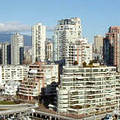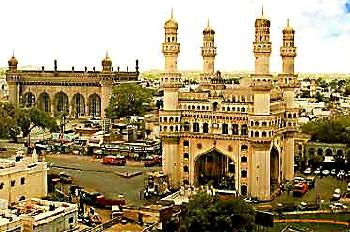 聯合國人居署(UN-Habitat)署長提貝盧卡(Anna Tibaijuka)20日於第三屆世界城市論壇的開幕式中向各國代表宣佈,「永續都市就在眼前」。提貝盧卡在會中提問說:「我們已有各國領袖簽署的全球宣言,承諾在政治上優先解決;我們也有一連串具體的目標,有全球性行動的計劃、政策方針與建議,以及參與度逐漸提高的公民社會。然而,為何我們所居住的都市,無論在已發展或發展中國家,都越來越朝向不永續發展?」
聯合國人居署(UN-Habitat)署長提貝盧卡(Anna Tibaijuka)20日於第三屆世界城市論壇的開幕式中向各國代表宣佈,「永續都市就在眼前」。提貝盧卡在會中提問說:「我們已有各國領袖簽署的全球宣言,承諾在政治上優先解決;我們也有一連串具體的目標,有全球性行動的計劃、政策方針與建議,以及參與度逐漸提高的公民社會。然而,為何我們所居住的都市,無論在已發展或發展中國家,都越來越朝向不永續發展?」
對現場包括加拿大總理哈柏在內的數千名聽眾,提貝盧卡提出一連串尖銳的質問:「全世界的貧民窟住了十億人口,問題叢生,為何貧民窟還在持續增加,並且超出了我們所能處理的速度?為何城市擴張、能源消耗量等問題,越來越令人憂心?為什麼幾乎聯合國所有會員國的領袖,都無法完整實踐他們的承諾?」
這場在溫哥華舉行的論壇,是由聯合國負責城市發展之機構「人居署」(UN Human Settlements Programme,或稱UN-Habitat)所辦理的,總共有數前名世界各國代表與會。提貝盧卡希望與會人士能貢獻新想法,協助解決一些迫切性的城市問題。」
 提貝盧卡在開幕式中說:「本屆世界城市論壇的子題『化想法為行動』,就是要明確點出我們所在的位置,點出了我們所需要的新想法…我相信大會議程的安排,是要鼓勵探索新的想法──「後設想法」(meta-ideas),也就是如何把新想法付諸實行的想法。」
提貝盧卡在開幕式中說:「本屆世界城市論壇的子題『化想法為行動』,就是要明確點出我們所在的位置,點出了我們所需要的新想法…我相信大會議程的安排,是要鼓勵探索新的想法──「後設想法」(meta-ideas),也就是如何把新想法付諸實行的想法。」
加拿大總理哈柏則在演說中指出,都市化是「強力而無法抗拒的現象」。哈柏說,為了鼓勵加拿大人少開車,政府提供優厚的免稅獎勵給大眾運輸使用人。「這不僅可舒緩交通,還可改善空氣品質。」他還指出:「中央已與各省府達成共識,要在2010年以前,全國汽油、柴油都要有5%的容量是生質燃料。」
聯合國環境規劃署執行長史坦能說:「到了2007年,人類將締造歷史紀錄──都市人口將首次大於鄉村人口。到了2050年,估計定居於都人的人口約達60億人。因此,世界城市論壇是一次重要的會議,與我們所有人所關心的問題迫切相關。」
史坦能說:「都市環境與鄉村環境必然息息相關,也必然和地方性、地區性、乃至全球性的自然資源緊密相連,攸關其健全與永續的經營管理。因此,改善城市問題顯得格外重要。希望我們能就全球性的發展目標、氣候變遷等迫切問題的解決等,在此取得共識。」
 "The sustainable city is now within sight," declared Anna Tibaijuka, head of UN Habitat, speaking Monday to delegates at the opening of World Urban Forum III. "We have the global statement of political priorities by world leaders, a set of measurable targets, a global plan of action, policy guidelines and recommendations, and an increasingly engaged civil society. Why, then, are our cities ?in both the developed and developing world ?becoming less and less sustainable?" she asked.
"The sustainable city is now within sight," declared Anna Tibaijuka, head of UN Habitat, speaking Monday to delegates at the opening of World Urban Forum III. "We have the global statement of political priorities by world leaders, a set of measurable targets, a global plan of action, policy guidelines and recommendations, and an increasingly engaged civil society. Why, then, are our cities ?in both the developed and developing world ?becoming less and less sustainable?" she asked.
Tibaijuka peppered the audience of thousands, including Canadian Prime Minister Stephen Harper, with questions. "Why are urban slums, which now contain over one billion people and their myriad of problems, still growing at a rate that outpaces all our attempts to deal with them? Why is urban sprawl and our gross consumption of energy becoming more worrisome? Why have the leaders of nearly all member states not acted fully on their commitments?" she demanded.
Thousands of delegates from throughout the world are here for the event, organized under the auspices of the UN Human Settlements Programme, or UN-Habitat, the city agency of the United Nations.
Tibaijuka hopes they will contribute new ideas to help solve some of these pressing urban problems.
"The sub-theme of this Third World Urban Forum, 'turning ideas into action' identifies the precise point where we are most in need of new ideas," Tibaijuka said. "I trust the agenda of this forum has been designed to encourage the exploration of meta-ideas – ideas on the implementation of yet new ideas."
In his address to the delegates Monday, Prime Minister Harper called urbanization "a powerful, irresistible phenomenon."
To encourage Canadians to use their cars less often, Harper said, his government is providing generous tax credits for the users of public transit. "This will help ease traffic congestion and improve urban air quality." "We have also reached an agreement with the provinces to set a national target of five percent biofuel content in Canadian gasoline and diesel fuel by 2010," Harper said.
UNEP's Executive Director Achim Steiner said, "In 2007, for the first time in history, more people will be urban than rural dwellers. By 2050, some six billion people are expected to be city dwellers. The World Urban Forum is thus an important meeting central to all our interests."
"The urban environment is inextricably intertwined with the rural one and inextricably linked with the way local, regional and global natural resources are soundly and sustainably managed," said Steiner. "So it is vital that we get cities right if we are to meet the internationally agreed development goals, if we are to deal with such pressing global issues as climate change."


